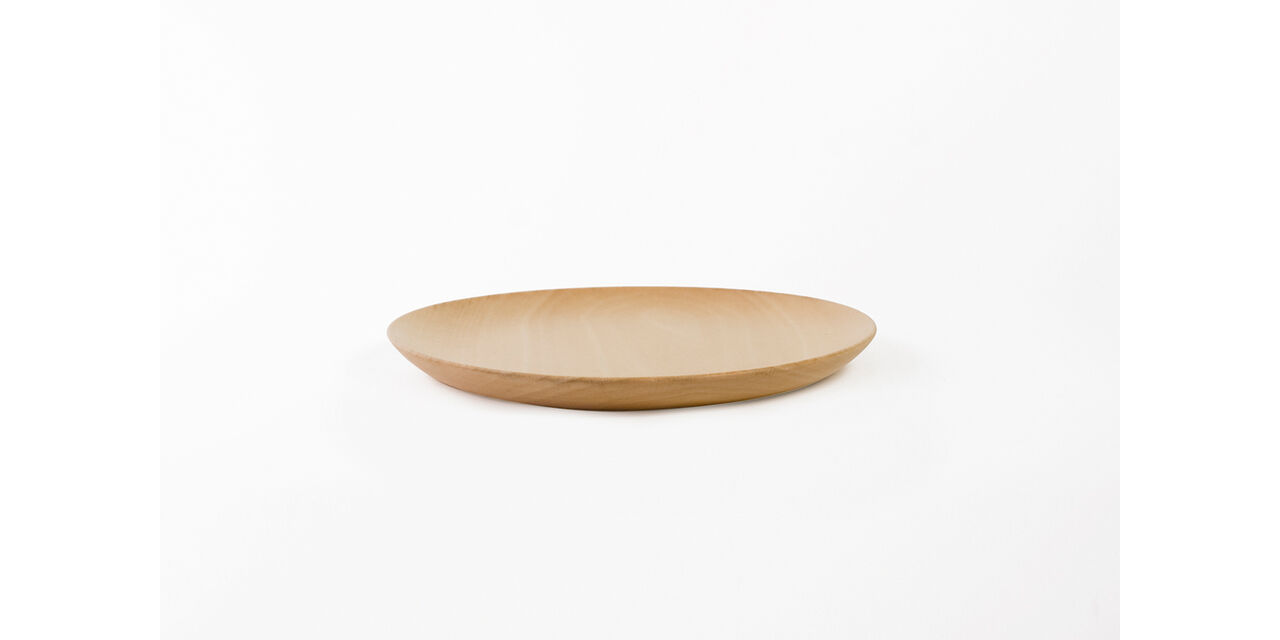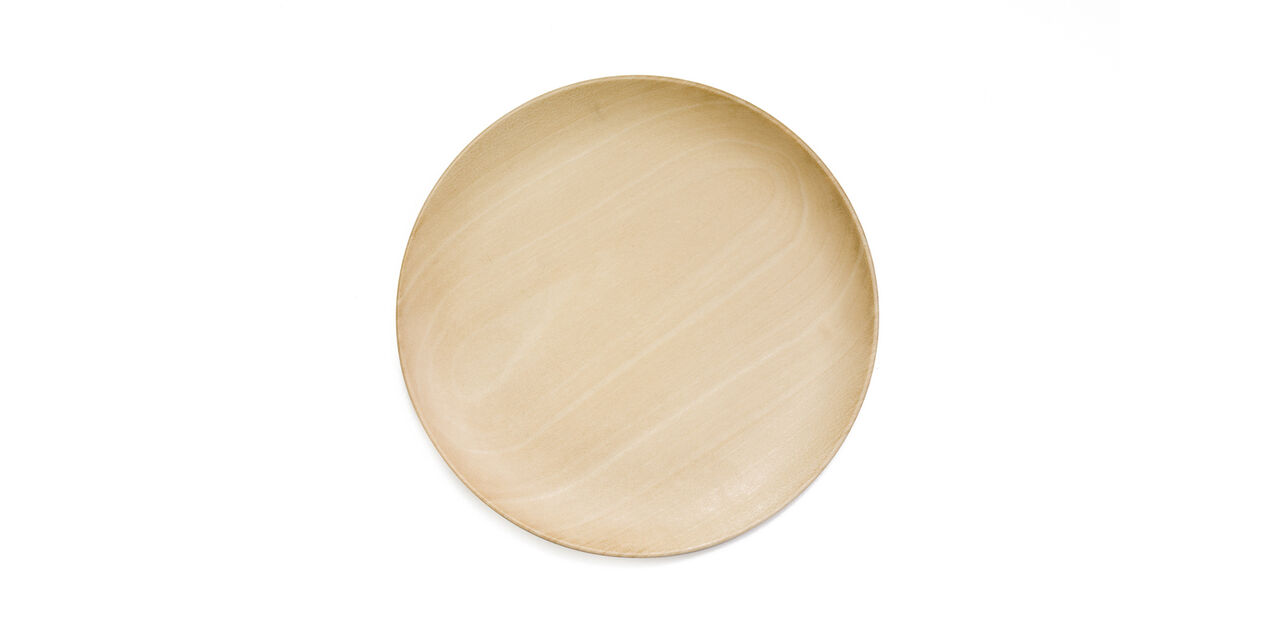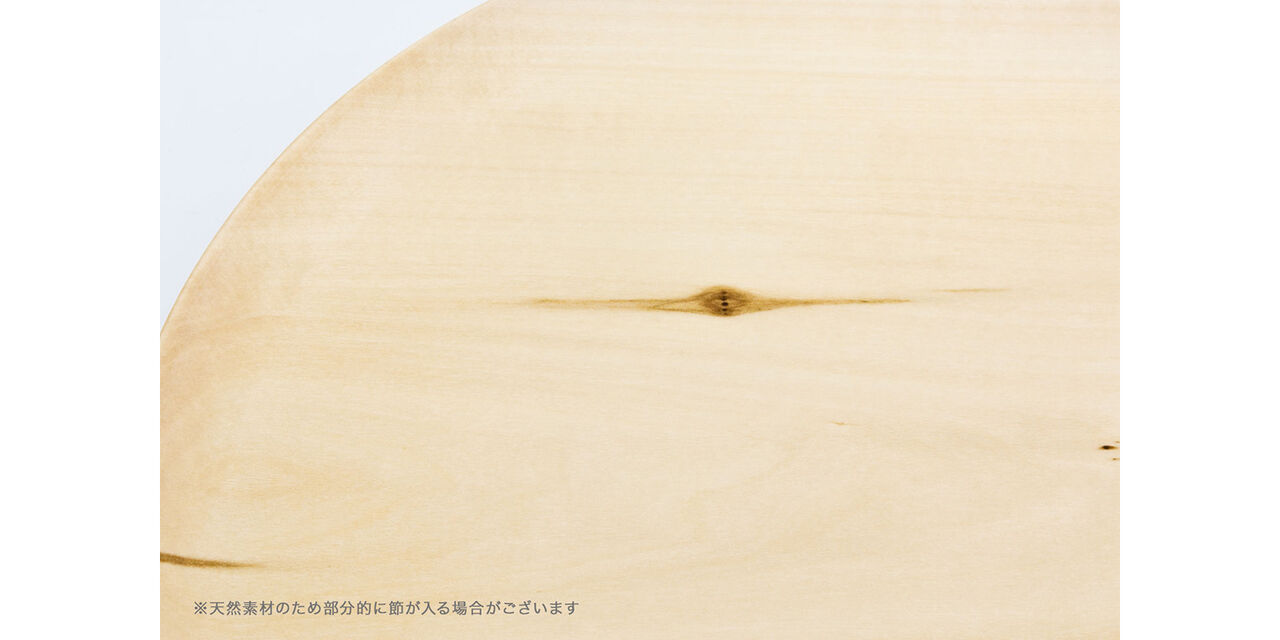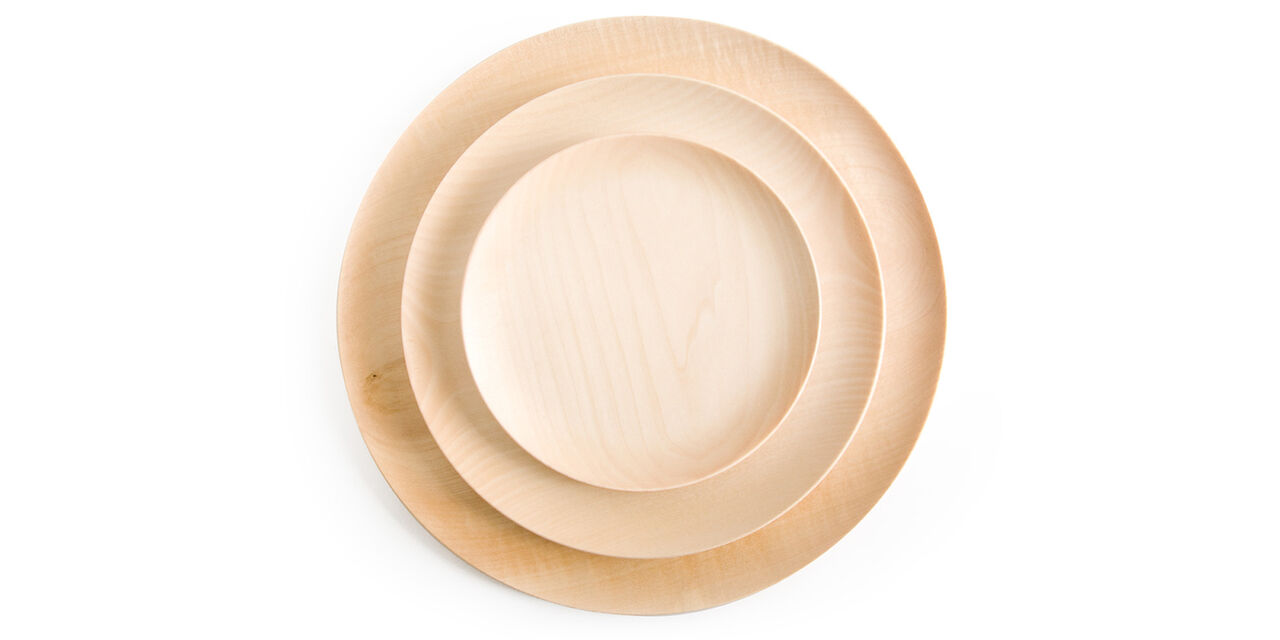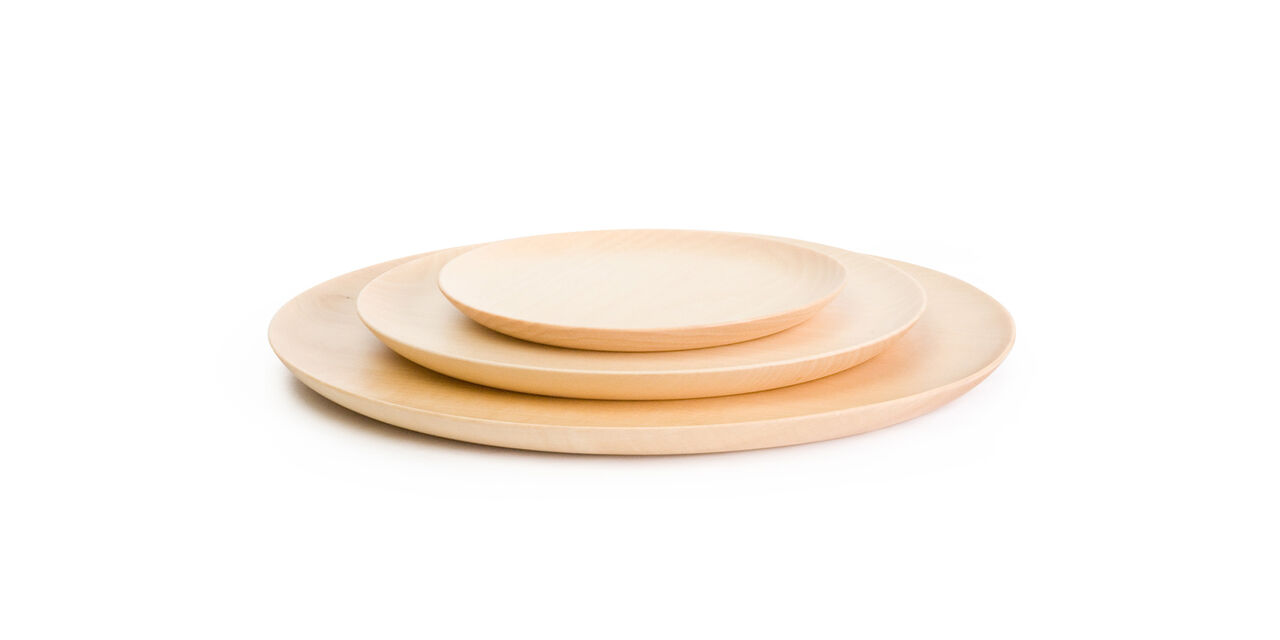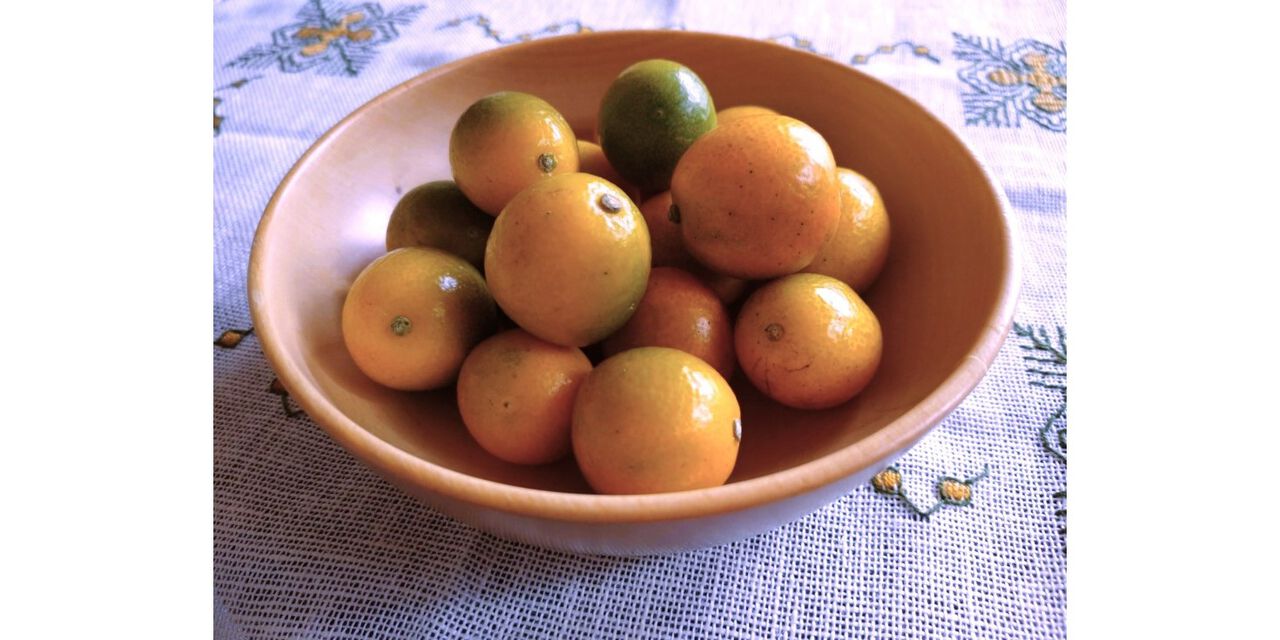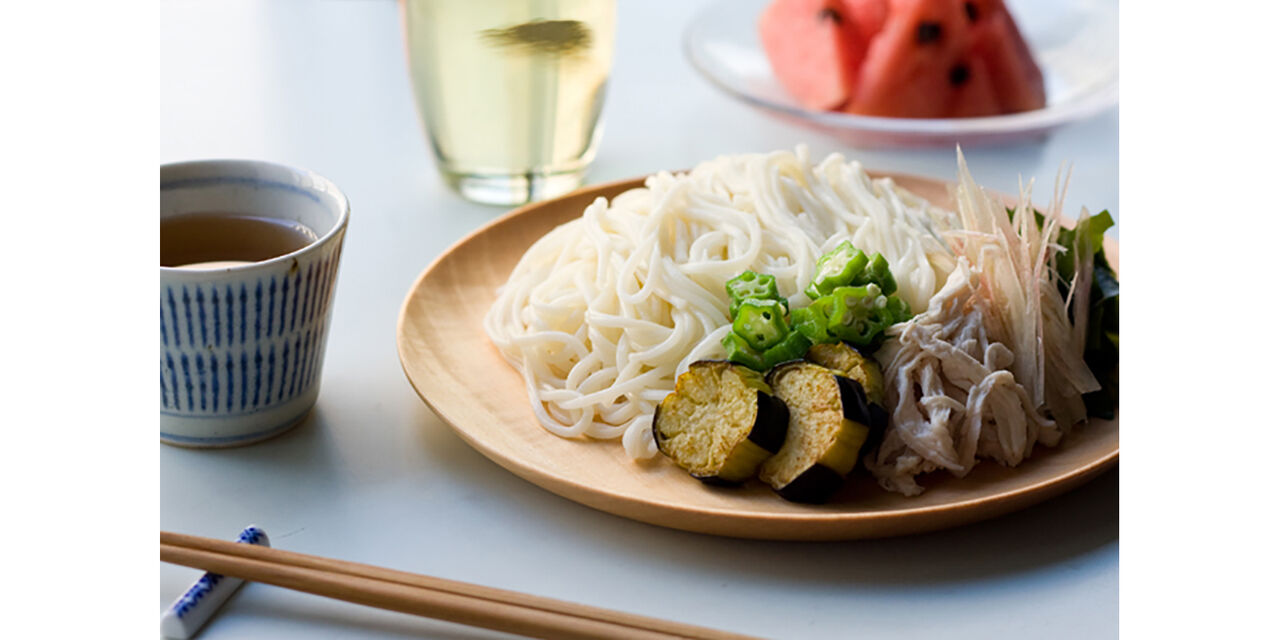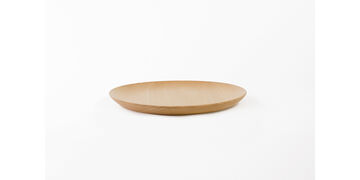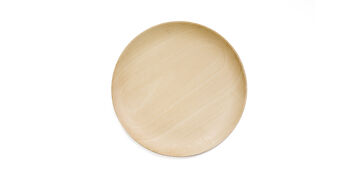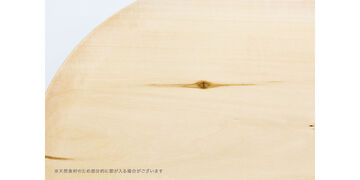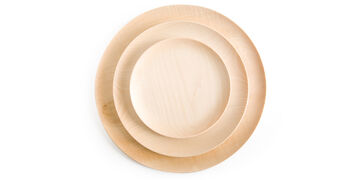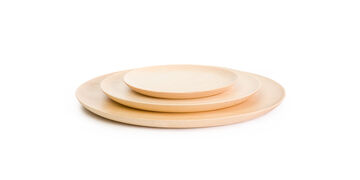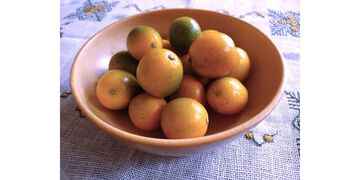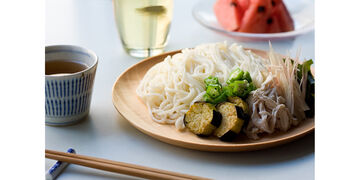Takahashi Kogei
Cara Plate 18cm
Made in
Japan
New
Large Item
Low in Stock
Sold Out
₱ 2,069.20
Color
Plate
Dish
Bowl
2012000300401
2012000300401
Wooden Tableware Inspired by the Shape of Eggshells
The design was based on the image of a breakfast set, with a view to its usability in everyday life.
Takahashi Kougei, a craftsman, has a high level of skill in thin wood carving, which is one of his specialties.
Designer Rina Ono, who created the "smooth round shape" to take advantage of this technique, used the shape of an egg, often used for breakfast, as a motif.
Cara Plate
The grain of the wood is not too strong and the design is simple, so it works well with other patterned tableware. Glass and ceramic plates are heavy, so moving them in and out of the capboard is a tough and tiring operation, but the Japanese linden wood that the Cara series is made of is surprisingly lightweight.
The 25 cm Plate is perfect for serving a single dish. The rim is beautifully raised and the flat bottom is wide, so you can place a small plate on top or enjoy serving a variety of side dishes one at a time. It also looks great when serving a salad for two or three people.

Cara Plate 25 cm
The 18cm Plate is the perfect size to use as a bread plate or to place a slice of cake on. It is also a good idea to have several of these plates for serving.

Cara Plate 18 cm
Cara Dish
Cara Dish is deeper than Cara Plate and wider in diameter than Cara Bowl.
The 24 cm Dish is ideal for pasta with lots of sauce. It is also the best choice for 'curry and rice', a popular and favorite meal of the Japanese people.

Cara Dish 24cm
The 18 cm Dish is suitable for use as a salad plate or as a serving dish for steamed dishes. It is also beautiful to place sliced fruit on.
Because of its beautiful whitish color, you may be worried about color migration in dishes with like turmeric spices such as curry, but thanks to the coating that prevents color and odor from seeping in, you can use it with confidence.


Cara Dish 18cm
Cara Bowl
Cara Bowl has the deepest shape compared to Cara Plate and Cara Dish.
Wooden bowls have low thermal conductivity, so they can be held in the hand even when they contain hot food. The bowl is useful for soup or porridge in your home. Because they are light, they are also convenient for children's tableware.

The 15cm Bowl is wonderful for serving salads for one person. It would also work well as a small plate for noodles or pasta.





Cara Bowl 15cm
The 12cm Bowl is nice as a soup bowl. This bowl will get your morning meal off to a great start. What would you eat in this bowl, yogurt and jam, cereal or fruit?

Cara Bowl 12cm
Made in Asahikawa, Hokkaido, where wood resources are abundant and woodworking is widespread.
The cups are made of lightweight, well-grained Hokkaido wood and are coated with a food-grade coating that prevents color reflection and staining. Tableware by Takahashi Kougei, who originally made wooden furniture legs. They are particular about locally produced materials. Please also see the "Manufacturers" section.

For that special someone, Give the gift of long life design
It is more resistant to breakage than glass or ceramics and is loved by many people. Each Takahashi Kougei item is shipped in a box, making it a great gift idea. Give the gift of long-life design to your family, friends, or someone special in your life.

The design was based on the image of a breakfast set, with a view to its usability in everyday life.
Takahashi Kougei, a craftsman, has a high level of skill in thin wood carving, which is one of his specialties.
Designer Rina Ono, who created the "smooth round shape" to take advantage of this technique, used the shape of an egg, often used for breakfast, as a motif.
Cara Plate
The grain of the wood is not too strong and the design is simple, so it works well with other patterned tableware. Glass and ceramic plates are heavy, so moving them in and out of the capboard is a tough and tiring operation, but the Japanese linden wood that the Cara series is made of is surprisingly lightweight.
The 25 cm Plate is perfect for serving a single dish. The rim is beautifully raised and the flat bottom is wide, so you can place a small plate on top or enjoy serving a variety of side dishes one at a time. It also looks great when serving a salad for two or three people.

Cara Plate 25 cm
The 18cm Plate is the perfect size to use as a bread plate or to place a slice of cake on. It is also a good idea to have several of these plates for serving.

Cara Plate 18 cm
Cara Dish
Cara Dish is deeper than Cara Plate and wider in diameter than Cara Bowl.
The 24 cm Dish is ideal for pasta with lots of sauce. It is also the best choice for 'curry and rice', a popular and favorite meal of the Japanese people.

Cara Dish 24cm
The 18 cm Dish is suitable for use as a salad plate or as a serving dish for steamed dishes. It is also beautiful to place sliced fruit on.
Because of its beautiful whitish color, you may be worried about color migration in dishes with like turmeric spices such as curry, but thanks to the coating that prevents color and odor from seeping in, you can use it with confidence.


Cara Dish 18cm
Cara Bowl
Cara Bowl has the deepest shape compared to Cara Plate and Cara Dish.
Wooden bowls have low thermal conductivity, so they can be held in the hand even when they contain hot food. The bowl is useful for soup or porridge in your home. Because they are light, they are also convenient for children's tableware.

The 15cm Bowl is wonderful for serving salads for one person. It would also work well as a small plate for noodles or pasta.





Cara Bowl 15cm
The 12cm Bowl is nice as a soup bowl. This bowl will get your morning meal off to a great start. What would you eat in this bowl, yogurt and jam, cereal or fruit?

Cara Bowl 12cm
Made in Asahikawa, Hokkaido, where wood resources are abundant and woodworking is widespread.
The cups are made of lightweight, well-grained Hokkaido wood and are coated with a food-grade coating that prevents color reflection and staining. Tableware by Takahashi Kougei, who originally made wooden furniture legs. They are particular about locally produced materials. Please also see the "Manufacturers" section.

For that special someone, Give the gift of long life design
It is more resistant to breakage than glass or ceramics and is loved by many people. Each Takahashi Kougei item is shipped in a box, making it a great gift idea. Give the gift of long-life design to your family, friends, or someone special in your life.

Cara Plate 18cm
Dimensions: Diameter 180 mm, Height 15 mm
Material: Japanese Linden (wood)
Finish: Polyurethane coating for tableware
Cara Plate 25cm
Dimensions: Diameter 250 mm, Height 18 mm
Material: Japanese Linden (wood)
Finish: Polyurethane coating for tableware
Cara Dish 18cm
Dimensions: Diameter 180 mm, Height 40 mm
Material: Japanese Linden (wood)
Finish: Polyurethane coating for tableware
Cara Dish 24cm
Dimensions: Diameter 240 mm, Height 35 mm
Material: Japanese Linden (wood)
Finish: Polyurethane coating for tableware
Cara Bowl 15cm
Dimensions: Diameter 150 mm, Height 45 mm
Material: Japanese Linden (wood)
Finish: Polyurethane coating for tableware
Cara Bowl 12cm
Dimensions: Diameter 120 mm, Height 55 mm
Material: Japanese Linden (wood)
Finish: Polyurethane coating for tableware
Dimensions: Diameter 180 mm, Height 15 mm
Material: Japanese Linden (wood)
Finish: Polyurethane coating for tableware
Cara Plate 25cm
Dimensions: Diameter 250 mm, Height 18 mm
Material: Japanese Linden (wood)
Finish: Polyurethane coating for tableware
Cara Dish 18cm
Dimensions: Diameter 180 mm, Height 40 mm
Material: Japanese Linden (wood)
Finish: Polyurethane coating for tableware
Cara Dish 24cm
Dimensions: Diameter 240 mm, Height 35 mm
Material: Japanese Linden (wood)
Finish: Polyurethane coating for tableware
Cara Bowl 15cm
Dimensions: Diameter 150 mm, Height 45 mm
Material: Japanese Linden (wood)
Finish: Polyurethane coating for tableware
Cara Bowl 12cm
Dimensions: Diameter 120 mm, Height 55 mm
Material: Japanese Linden (wood)
Finish: Polyurethane coating for tableware
Takahashi Kougei (Woodworker Hidetoshi Takahashi)
Takahashi Kougei produces wheel-thrown wooden tableware in Asahikawa, Hokkaido, Japan. He makes use of the original color and grain of the wood as it is, and is conscious of the usability of wood in everyday life. He stands at the wheel with Japanese product designers Masanori Ohji and Rina Ono, and the three of them create products while checking the feel of the wheel.

Takahashi buys the trees while they are still planted in the mountains, cuts them down, and lets them rest for several years to allow warping and shrinkage to settle before he begins working with them. He selects the best parts of each piece and carefully finishes them by hand, a truly artisanal process.

Takahashi Kougei produces wheel-thrown wooden tableware in Asahikawa, Hokkaido, Japan. He makes use of the original color and grain of the wood as it is, and is conscious of the usability of wood in everyday life. He stands at the wheel with Japanese product designers Masanori Ohji and Rina Ono, and the three of them create products while checking the feel of the wheel.

Takahashi buys the trees while they are still planted in the mountains, cuts them down, and lets them rest for several years to allow warping and shrinkage to settle before he begins working with them. He selects the best parts of each piece and carefully finishes them by hand, a truly artisanal process.

Do not use a dishwasher or dryer.
Do not expose to fire, microwave, or oven.
Do not expose to fire, microwave, or oven.
Wooden Tableware Inspired by the Shape of Eggshells
The design was based on the image of a breakfast set, with a view to its usability in everyday life.
Takahashi Kougei, a craftsman, has a high level of skill in thin wood carving, which is one of his specialties.
Designer Rina Ono, who created the "smooth round shape" to take advantage of this technique, used the shape of an egg, often used for breakfast, as a motif.
Cara Plate
The grain of the wood is not too strong and the design is simple, so it works well with other patterned tableware. Glass and ceramic plates are heavy, so moving them in and out of the capboard is a tough and tiring operation, but the Japanese linden wood that the Cara series is made of is surprisingly lightweight.
The 25 cm Plate is perfect for serving a single dish. The rim is beautifully raised and the flat bottom is wide, so you can place a small plate on top or enjoy serving a variety of side dishes one at a time. It also looks great when serving a salad for two or three people.

Cara Plate 25 cm
The 18cm Plate is the perfect size to use as a bread plate or to place a slice of cake on. It is also a good idea to have several of these plates for serving.

Cara Plate 18 cm
Cara Dish
Cara Dish is deeper than Cara Plate and wider in diameter than Cara Bowl.
The 24 cm Dish is ideal for pasta with lots of sauce. It is also the best choice for 'curry and rice', a popular and favorite meal of the Japanese people.

Cara Dish 24cm
The 18 cm Dish is suitable for use as a salad plate or as a serving dish for steamed dishes. It is also beautiful to place sliced fruit on.
Because of its beautiful whitish color, you may be worried about color migration in dishes with like turmeric spices such as curry, but thanks to the coating that prevents color and odor from seeping in, you can use it with confidence.


Cara Dish 18cm
Cara Bowl
Cara Bowl has the deepest shape compared to Cara Plate and Cara Dish.
Wooden bowls have low thermal conductivity, so they can be held in the hand even when they contain hot food. The bowl is useful for soup or porridge in your home. Because they are light, they are also convenient for children's tableware.

The 15cm Bowl is wonderful for serving salads for one person. It would also work well as a small plate for noodles or pasta.





Cara Bowl 15cm
The 12cm Bowl is nice as a soup bowl. This bowl will get your morning meal off to a great start. What would you eat in this bowl, yogurt and jam, cereal or fruit?

Cara Bowl 12cm
Made in Asahikawa, Hokkaido, where wood resources are abundant and woodworking is widespread.
The cups are made of lightweight, well-grained Hokkaido wood and are coated with a food-grade coating that prevents color reflection and staining. Tableware by Takahashi Kougei, who originally made wooden furniture legs. They are particular about locally produced materials. Please also see the "Manufacturers" section.

For that special someone, Give the gift of long life design
It is more resistant to breakage than glass or ceramics and is loved by many people. Each Takahashi Kougei item is shipped in a box, making it a great gift idea. Give the gift of long-life design to your family, friends, or someone special in your life.

The design was based on the image of a breakfast set, with a view to its usability in everyday life.
Takahashi Kougei, a craftsman, has a high level of skill in thin wood carving, which is one of his specialties.
Designer Rina Ono, who created the "smooth round shape" to take advantage of this technique, used the shape of an egg, often used for breakfast, as a motif.
Cara Plate
The grain of the wood is not too strong and the design is simple, so it works well with other patterned tableware. Glass and ceramic plates are heavy, so moving them in and out of the capboard is a tough and tiring operation, but the Japanese linden wood that the Cara series is made of is surprisingly lightweight.
The 25 cm Plate is perfect for serving a single dish. The rim is beautifully raised and the flat bottom is wide, so you can place a small plate on top or enjoy serving a variety of side dishes one at a time. It also looks great when serving a salad for two or three people.

Cara Plate 25 cm
The 18cm Plate is the perfect size to use as a bread plate or to place a slice of cake on. It is also a good idea to have several of these plates for serving.

Cara Plate 18 cm
Cara Dish
Cara Dish is deeper than Cara Plate and wider in diameter than Cara Bowl.
The 24 cm Dish is ideal for pasta with lots of sauce. It is also the best choice for 'curry and rice', a popular and favorite meal of the Japanese people.

Cara Dish 24cm
The 18 cm Dish is suitable for use as a salad plate or as a serving dish for steamed dishes. It is also beautiful to place sliced fruit on.
Because of its beautiful whitish color, you may be worried about color migration in dishes with like turmeric spices such as curry, but thanks to the coating that prevents color and odor from seeping in, you can use it with confidence.


Cara Dish 18cm
Cara Bowl
Cara Bowl has the deepest shape compared to Cara Plate and Cara Dish.
Wooden bowls have low thermal conductivity, so they can be held in the hand even when they contain hot food. The bowl is useful for soup or porridge in your home. Because they are light, they are also convenient for children's tableware.

The 15cm Bowl is wonderful for serving salads for one person. It would also work well as a small plate for noodles or pasta.





Cara Bowl 15cm
The 12cm Bowl is nice as a soup bowl. This bowl will get your morning meal off to a great start. What would you eat in this bowl, yogurt and jam, cereal or fruit?

Cara Bowl 12cm
Made in Asahikawa, Hokkaido, where wood resources are abundant and woodworking is widespread.
The cups are made of lightweight, well-grained Hokkaido wood and are coated with a food-grade coating that prevents color reflection and staining. Tableware by Takahashi Kougei, who originally made wooden furniture legs. They are particular about locally produced materials. Please also see the "Manufacturers" section.

For that special someone, Give the gift of long life design
It is more resistant to breakage than glass or ceramics and is loved by many people. Each Takahashi Kougei item is shipped in a box, making it a great gift idea. Give the gift of long-life design to your family, friends, or someone special in your life.

Cara Plate 18cm
Dimensions: Diameter 180 mm, Height 15 mm
Material: Japanese Linden (wood)
Finish: Polyurethane coating for tableware
Cara Plate 25cm
Dimensions: Diameter 250 mm, Height 18 mm
Material: Japanese Linden (wood)
Finish: Polyurethane coating for tableware
Cara Dish 18cm
Dimensions: Diameter 180 mm, Height 40 mm
Material: Japanese Linden (wood)
Finish: Polyurethane coating for tableware
Cara Dish 24cm
Dimensions: Diameter 240 mm, Height 35 mm
Material: Japanese Linden (wood)
Finish: Polyurethane coating for tableware
Cara Bowl 15cm
Dimensions: Diameter 150 mm, Height 45 mm
Material: Japanese Linden (wood)
Finish: Polyurethane coating for tableware
Cara Bowl 12cm
Dimensions: Diameter 120 mm, Height 55 mm
Material: Japanese Linden (wood)
Finish: Polyurethane coating for tableware
Dimensions: Diameter 180 mm, Height 15 mm
Material: Japanese Linden (wood)
Finish: Polyurethane coating for tableware
Cara Plate 25cm
Dimensions: Diameter 250 mm, Height 18 mm
Material: Japanese Linden (wood)
Finish: Polyurethane coating for tableware
Cara Dish 18cm
Dimensions: Diameter 180 mm, Height 40 mm
Material: Japanese Linden (wood)
Finish: Polyurethane coating for tableware
Cara Dish 24cm
Dimensions: Diameter 240 mm, Height 35 mm
Material: Japanese Linden (wood)
Finish: Polyurethane coating for tableware
Cara Bowl 15cm
Dimensions: Diameter 150 mm, Height 45 mm
Material: Japanese Linden (wood)
Finish: Polyurethane coating for tableware
Cara Bowl 12cm
Dimensions: Diameter 120 mm, Height 55 mm
Material: Japanese Linden (wood)
Finish: Polyurethane coating for tableware
Takahashi Kougei (Woodworker Hidetoshi Takahashi)
Takahashi Kougei produces wheel-thrown wooden tableware in Asahikawa, Hokkaido, Japan. He makes use of the original color and grain of the wood as it is, and is conscious of the usability of wood in everyday life. He stands at the wheel with Japanese product designers Masanori Ohji and Rina Ono, and the three of them create products while checking the feel of the wheel.

Takahashi buys the trees while they are still planted in the mountains, cuts them down, and lets them rest for several years to allow warping and shrinkage to settle before he begins working with them. He selects the best parts of each piece and carefully finishes them by hand, a truly artisanal process.

Takahashi Kougei produces wheel-thrown wooden tableware in Asahikawa, Hokkaido, Japan. He makes use of the original color and grain of the wood as it is, and is conscious of the usability of wood in everyday life. He stands at the wheel with Japanese product designers Masanori Ohji and Rina Ono, and the three of them create products while checking the feel of the wheel.

Takahashi buys the trees while they are still planted in the mountains, cuts them down, and lets them rest for several years to allow warping and shrinkage to settle before he begins working with them. He selects the best parts of each piece and carefully finishes them by hand, a truly artisanal process.

Do not use a dishwasher or dryer.
Do not expose to fire, microwave, or oven.
Do not expose to fire, microwave, or oven.
